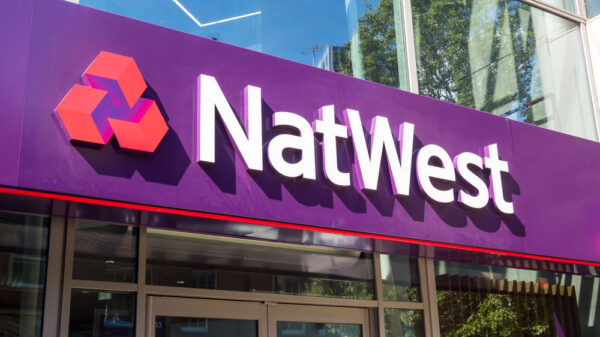Last month, the EU started action against 20 airlines over greenwashing claims. They included big household names in the aviation world, too, including Ryanair.
It’s estimated that travel and tourism accounts for 8% of global carbon emissions, and corporate travel can contribute to upwards of 90% of a company’s carbon footprint.
Despite – or hopefully, because of – this, new research from the Business Travel Show Europe has revealed that nearly two thirds (63%) of European corporate travel and procurement managers believe sustainable travel is possible.
Marketing director Jonathan Carter-Chapman takes a closer look at the numbers as he asks if sustainable aviation fuel is really the saviour of corporate travel?
When asked how to achieve sustainable travel, 2.5% of respondents to the survey said the answer is simply ‘flying less’. A further 35% focused on carbon removal, 40% mentioned offsetting emissions and 48% would look to use carbon neutral suppliers.
The top responses, however, were ‘travelling less’ (50%) and ‘decarbonisation’ or, more specifically, using sustainable aviation fuel (SAF) (also 50%).
This last point is an interesting one. There is mixed opinion on the potential of SAF as the sustainability saviour of business aviation travel, but it’s certainly a promising start. Business travel industry trade magazine BTNE has quoted Virgin Atlantic saying SAF is the ‘only viable mid-term solution to decarbonise long-hail aviation and it needs to be produced at scale’.
Virgin Atlantic is responsible for Flight 100 – the landmark flight between London and New York in November, powered fully by SAF. The airline recently published the results of Flight 100 – it saved 64% (equivalent to 95 tonnes) of emissions when compared to the same flight using standard jet fuel.
Subscribe to Sustainability Beat for free
Sign up here to get the latest sustainability news sent straight to your inbox everyday
Last week, the UK government published its SAF aviation mandate with a target for 10% of all jet fuel used on flights taking off from the UK to be SAF by 2030.
Virgin Atlantic responded by calling on the government to ‘match ambition to action’ and create a revenue certainty scheme that will encourage investment in SAF production.
Corporate barriers to implementing effective sustainable aviation policies
SAF aside, are corporates actually putting their money where their beliefs are? It’s a good question. The Business Travel Show Europe data shows that 24% of corporates don’t have a sustainable travel policy.
Why? Well, over a third (37%) point to a lack of commitment from senior management and 16 per cent say it’s a cost issue. Since the pandemic, costs (increasing costs vs the pressure to cut them) has been the overriding challenge facing travel managers, but is this really a valid excuse in 2024?
A further 16% blame technology – saying their online booking isn’t set up for carbon budgeting, offsetting or highlighting greener options. The answer here, surely, is to find new tech or change your travel management company? Isn’t an online booking tool with no – or inadequate – sustainability features simply unfit for purpose?
For the 76% of corporates who do have a sustainable travel policy in place – and gold stars all round to you – what does that look like?
According to the data, 21% are actively reducing internal travel, 16% are restricting non-essential trips and 12% are capping how many people travel for the same overseas meetings. In addition to managing trip volumes, 16% invest in carbon removal, 12% offset, 15% book greener accommodation options and – hurrah – 8% have invested in SAF.
Best practice for enforcing sustainable travel policies
No-one is denying it takes time to create and then implement a sustainable travel policy, especially given the focus on cost-cutting for many businesses and the lack of SMT support. But once it is in place, how on earth do travel managers enforce compliance from travellers?
Collaboration and communication are key – with travel managers highlighting the importance of including traveller preferences, engaging travellers from day one, being clear and consistent with comms, and routinely and transparently reporting on progress against KPIs.
Over and above that, a quarter of corporates rely on technology to enforce compliance (a sort of combined carrot and stick approach) and have built unbendable rules into their online booking tools. That means 6% have blocked domestic aviation options, 4% have set mandatory carbon budgets per traveller, and a further 4% have made it mandatory to use electric vehicles for both car and taxi hire.
Business Travel Show Europe exhibitor Corporate Travel Management (CTM) recently won the Business Travel Sustainability Award for most sustainable online booking tool. Its tech – Lightning – wins awards for two reasons: its functionality and its user experience.
You need both to drive compliance, and CTM is laser focused on ensuring its technology is designed to make life easier for travellers and managers to make more sustainable decisions.
It is also currently integrating SAF commitment, purchase and usage scores by airline because customer feedback has shown that organisations adopting science-based targets rather than offsets are keen to understand how they can make sustainable aviation fuel purchases and partner agreements part of their travel programme.
Maybe SAF is the mid-term sustainability saviour this industry needs after all.










